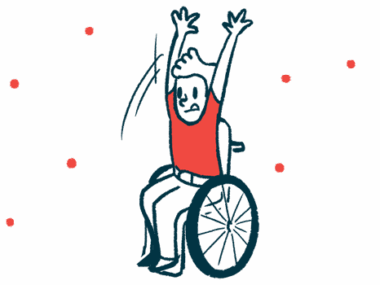Video Games, but at What Cost?
Written by |


I don’t want to spend too much time talking about video games — mainly because I know some of my readers have never played one. However, for my last installment (for a while, at least), I want to discuss how video games and their inaccessibility have forced the people around me to play in my stead.
When my dad first brought home the sleek black body that was the PlayStation 2, he also brought home “Tarzan Untamed.” Thanks to Blockbuster, there really wasn’t much point in renting a game console if you didn’t have games to play. I was young at the time, around 10 years old, and my muscles were stronger, so I was able to do things like hold a controller that I am no longer able to. Being able to hold a controller allowed me to play through most of the levels of “Tarzan Untamed” on my own. Key word being “most.”
At one point, Tarzan gets eaten by a crocodile. Or maybe the crocodile tries to eat Tarzan, which is clearly a futile endeavor. (After all, this is Tarzan we’re talking about here.) But the game devs knew they had to capitalize on the sheer thrill of watching the iconic ape-man force a lizard’s jaws apart with his bare hands, so they threw in a mini level. To escape, you had to press a pattern of buttons in a certain order, and fast. Meanwhile, the controller buzzes uncontrollably — wildly, terrifyingly — in your hand.
I was pretty good at PlayStation. But I just could not beat that crocodile. So whenever that level started to load — and load it did — I got stuck about halfway through the game. I was essentially just playing the same levels over and over again. Eventually I would call my dad over and beg him to take care of things: “C’mon, please, you’re so good at it …”
Then came “Battlefront,” “KOTOR,” “SWTOR.” These games were, all things considered, mostly accessible, and I enjoyed being able to play a game without my dad having to help me out every once in a while. You don’t ever really associate gaming with independence, but trust me, it actually plays a huge role.
Still, I got used to telling friends, “Sure, I’ll try that game with you, but I can’t promise anything because I just don’t know if I can play something until I try it out, you know?” Which was fine. They understood. But it didn’t make things easier for me — I, for some reason, felt embarrassed, like the ignorance of a game’s developer was somehow my fault. I’ve lost count of the number of times I’ve said, “I wish I could play with you,” and inevitably each time they would come back with, “Yeah, dude, me too.“
A few years ago, though, my friend had an idea. “Why don’t I just play for you?” he asked. “You can tell me what dialogue options to choose, and I’ll just shoot people.” And I remember thinking, “Bad idea. Your anxiety’s gonna kill you.” Which was true. It absolutely did. But it was worth it, I think, because I got to watch my best friend get brutally murdered in “Deus Ex: Human Revolution,” only to have him compliment me for somehow managing to charm my way through one of the hardest conversations in the entire game.
It’s a solution. And it works. But it means I have to rely on my friends — which, in itself, isn’t a bad thing. But when you think about the independence video games once gave me, it’s hard to reconcile the two. The only reason I’ve been able to play “Mass Effect” is because my friends are able and willing to drive 45 minutes to my house and listen to me waffle between letting Ashley or Kaidan die. And they enjoy it. I know they do. But I wish they didn’t have to. I wish my independence wasn’t something I have to sacrifice, because God knows I’ve done enough of that to last me a lifetime.
***
Note: SMA News Today is strictly a news and information website about the disease. It does not provide medical advice, diagnosis, or treatment. This content is not intended to be a substitute for professional medical advice, diagnosis, or treatment. Always seek the advice of your physician or other qualified health provider with any questions you may have regarding a medical condition. Never disregard professional medical advice or delay in seeking it because of something you have read on this website. The opinions expressed in this column are not those of SMA News Today or its parent company, Bionews Services, and are intended to spark discussion about issues pertaining to spinal muscular atrophy.




Liz
Hi Brianna
I am so glad that you have such a valuable friend who supports you in the battle. Certainly one would like more independence in the play. I know how hard it is to fight for 45 minutes
The more beautiful I find, if you have a partner . Thank you for this beautiful article Brianna. :)
Do you play games to mobile! I ask because I play some, maybe we could meet somewhere
Brianna Albers
Hi Liz! Thanks for the kind words. :~) Unfortunately I'm not really into mobile gaming -- there are a couple of titles I might be interested in trying, but overall I find PC gaming to be easier for me personally. Do you play anything computer-based?
Liz
That's okay Brianna I was a little curious. ? Oh yes I have some games in which I always like to dive up. One of the games is the Sims 4, followed by Battlefield 1 and SimCity 2013. Every now and then I play Kotor on Mac.
Brianna Albers
I used to play the Sims all the time! Though I think I got rid of all my expansion packs -- they're so addictive, and a major time-suck for me personally. I love KOTOR, though! KOTOR II is actually my all-time favorite game. If you enjoy Star Wars, you should definitely try SWTOR. :~)